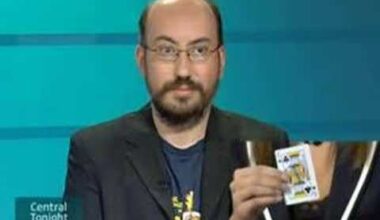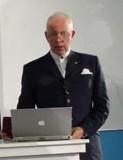People with great memories leave an imprint on those who meet them. There is a confidence and carriage about them that seems to command respect, even though they themselves may have butterflies in their stomachs. What they all have in common is they realize the value of having a good memory.
A great memory is not something you are born with. It takes focus, simple memory improvement techniques that help them to remember, and a lot of practice to get it right. Without a system it would be impossible to remember lists, facts or events. No matter who they are, they have some kind of system. It may be something most memory experts use — like the “loci” method, or they may have come up with a system all their own that helps them remember. Some people may call memory techniques “cheat sheets,” but it’s whatever works for them.
U.S. Army Chief of Staff and Secretary of State during World War II (1930s and 1940s) General George Marshall would listen to questions from reporters at a news conference and not lose track of his prepared statement. For anyone who has ever been in front of an army of reporters bombarding you with questions at the same time, that is quite a feat! After he finished his statement he would go back to each reporter who had a question and, without them repeating the question, answer them one by one. Marshall was able to associate key words or the premise of each question with the names and faces of the reporters who asked them.
The world’s most notable memory expert for four decades, David M. Roth (not David Lee Roth) was 97 when he passed away, but his memory was still intact. He was able to recite Thomas Gray’s 128-line “Elegy Written in a Country Churchyard;” repeat the telephone numbers of any of the 600 members in his chapter of the Rotary Club; and could cite the days of the week for any date from 1752 to 3000. What was the secret to his incredible memory? According to Roth, “You have to visualize in your mind what it is you are trying to remember.”
Harry Pillsbury (1872-1906), world champion chess player was as well known for his memory as his chess playing. In 1900, at the Franklin Chess Club, played 32 games simultaneously with 32 different opponents, blindfolded. He was not able to see the pieces or the boards, yet won more games than he lost. In 1902 he played 21 games while blindfolded (winning 18, drawing 2, losing 1). Once two professors tested him by having him memorize up to 30 extremely difficult words (such as antiphlogistine, takadiastase, and streptococcus). He was able to do forward and backward, without mistake!
Lucius Scipio, a senator in ancient Rome, was able to remember that names and faces of all the people living in the city.
Jerry Lucas, three-time recipient of the Basketball Player of the Year Award, has made a name for himself outside of the basketball court as a memory expert. Lucas has authored more than sixty books in the field of memory training and learning systems. Doctor Memoryâ„¢, as he is now widely known, is an expert in developing the many methods that encompass his memory concepts known as “Learning That Lastsâ„¢.” One of the methods he and his colleagues use is visualization and association, or as Lucas calls it, the “Link and the Substitute Word.”
Anyone can learn to improve memory, and even become a memory champion, as I was able to do. It takes training and concentration, but it is within your reach if you have the desire to do it. As a memory expert I like to use a variety of different memory techniques, the one I use most often is called the “Method of Loci.”
The loci method came from an ancient poet named Simonides, who attended a large banquet and was lucky enough to leave the hall minutes before the roof collapsed and everyone inside was killed. Simonides was able to aid rescuers in identifying the bodies by recalling who sat at what table — associating their seating chart with their names and faces.
Famous people become famous for a reason. A fabulous memory makes them stand out so their other achievements are remembered as well.
—————
About the author:
Ron White is a two-time U.S.A. Memory Champion .As a memory keynote speaker he travels the world to speak before large groups or small company seminars, demonstrating his memory skills and teaching others how to improve their memory, and how important a good memory is in all phases of your life. His CDs and memory products are also available online at BrainAthlete.com.
————-
Sources:
The Memory Book, by Harry Lorayne & Jerry Lucas
Wikipedia — George Marshall: http://en.wikipedia.org/wiki/George_Marshall
David M. Roth: http://www.lybrary.com/david-roth-m-100.html
L.A. Times – http://framework.latimes.com/2011/06/10/the-memory-expert/
The Rotarian — The Amazing Experience of Victor Jones: http://books.google.com/books?id=q1gEAAAAMBAJ&pg=PA185&lpg=PA185&dq=David+Roth+memory+expert&source=bl&ots=n95PSfKqnT&sig=0bzsFrCH3WqVmmwoiIDXvV_Bxuw&hl=en&ei=BeTPTpGnOMje2AWfhcXPDw&sa=X&oi=book_result&ct=result&resnum=1&ved=0CD0Q6AEwADgK#v=onepage&q=David%20Roth%20memory%20expert&f=false





